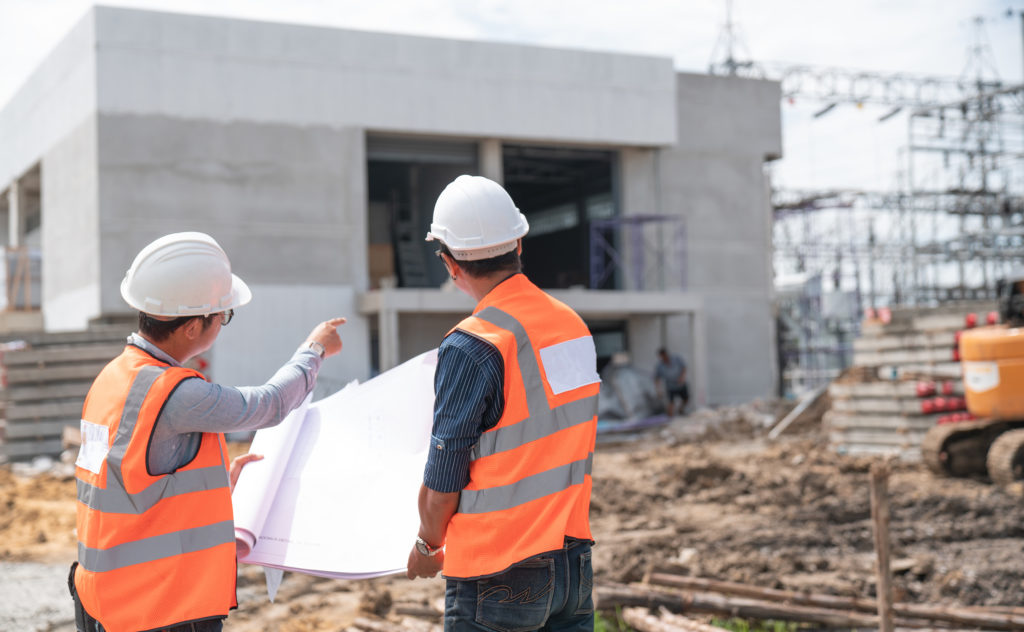Aug 01, 2018

There are many indications that Michigan’s economy is strong, but one of the clearest indicators is the historically low industrial vacancy rate in Detroit and throughout southeast Michigan. In the first quarter of 2018, the average industrial vacancy rate for the Detroit market reached an all-time low of 1.95%. This represents a huge turnaround from just under a decade ago when industrial vacancy rates peaked at around 16%.
“The low industrial vacancy rates are like nothing we have experienced in recent history,” says Rob Luce, executive director of the Detroit Region Aerotropolis Development Corporation. “It presents a significant growth opportunity for the Detroit Region Aerotropolis because of our vast supply of vacant, buildable land.”
The Detroit Region Aerotropolis Development Corporation has property sheets available for about 40 parcels of land that are 25 acres or above, currently on the market, and zoned for industrial or commercial use. And there are an additional 50 sites that are in the range of 10-25 acres. The property sheets are available on the Detroit Aerotropolis website.
Low Vacancy Rates Push Lease Prices Up
Not surprisingly, the low industrial vacancy rates mean that the market is more favorable for landlords and property owners. According to data recently published by the CBRE Group, the world’s largest commercial real estate services, and investment firm, the first quarter 2018 average asking lease rate in the Detroit market increased by 5% quarter-over-quarter to $6.35 per square foot. In the Midwest, average asking lease rates are around $4.66 per square foot. Rates are comparable in the south, with Atlanta coming in at $4.77 and Nashville coming in at $4.70 per square foot.
The CBRE Group, with offices in the Detroit metro area, has been monitoring the shifts in the Detroit real estate market. “The market continues to be solid,” says Peter Rogers, first vice president at the CBRE Group, “There is land available for development. The key is to create the infrastructure to support new development projects.”
That’s where the efforts of the Detroit Region Aerotropolis Development Corporation really begin to take hold. As a designated Next Michigan Development Corporation, the Detroit Region Aerotropolis is empowered to approve a suite of economic development incentives to enable corporate investment. By partnering with state and local governments, as well as businesses and real estate developers, the Aerotropolis can help subsidize infrastructure development to support projects in the region.
Building is Becoming a More Attractive Option
Low industrial vacancy rates and increasing lease rates mean businesses may not be able to find an existing, cost-effective option that is suited to their specific needs. “As they explore options in the Detroit market, companies may find that building a new customized space is their best option,” says Luce. “Over the long run, it may be the most cost-effective option as well.”
In fact, many companies have already made this choice. According to data from the CBRE, there were 27 projects under construction at the end of the first quarter, a significant increase from just two years ago, when there were 16 projects under construction. The 27 new builds will add over 5.6 million square feet of industrial space to the market. Two of the projects are located in the Detroit Aerotropolis region – Penske’s 600,000 square foot distribution center and another 855,000 square foot build-to-suit warehousing and distribution space. Both properties are under development in Romulus.
The low industrial vacancy rates are also making spec builds a more attractive option. Ashley Capital, one of the largest privately-held real estate investment companies in the United States, is focused on building and maintaining industrial parks. They recently completed two buildings in Livonia that were built on spec, both of which filled up within a few months. They are currently working on an industrial park in the Detroit Aerotropolis region called Crossroads North.
“In the past, financing was a barrier to spec projects in Michigan,” explains Mike Balow, Senior Manager at Ashley Capital. “But now the economy is strong. Lenders are willing to finance spec projects and developers are willing to take the risk because we know there is unmet demand.”
Building on spec is also a way for developers to accommodate businesses that require a short turnaround time prior to occupancy. If the building is already built, the developer can finish up the office space and make the necessary modifications within a few months so the business can move in.
“The real estate market is hot right now,” says Luce. “As companies look to expand their footprint, we want them to know that the Detroit Aerotropolis region is the premier location for new construction.”


